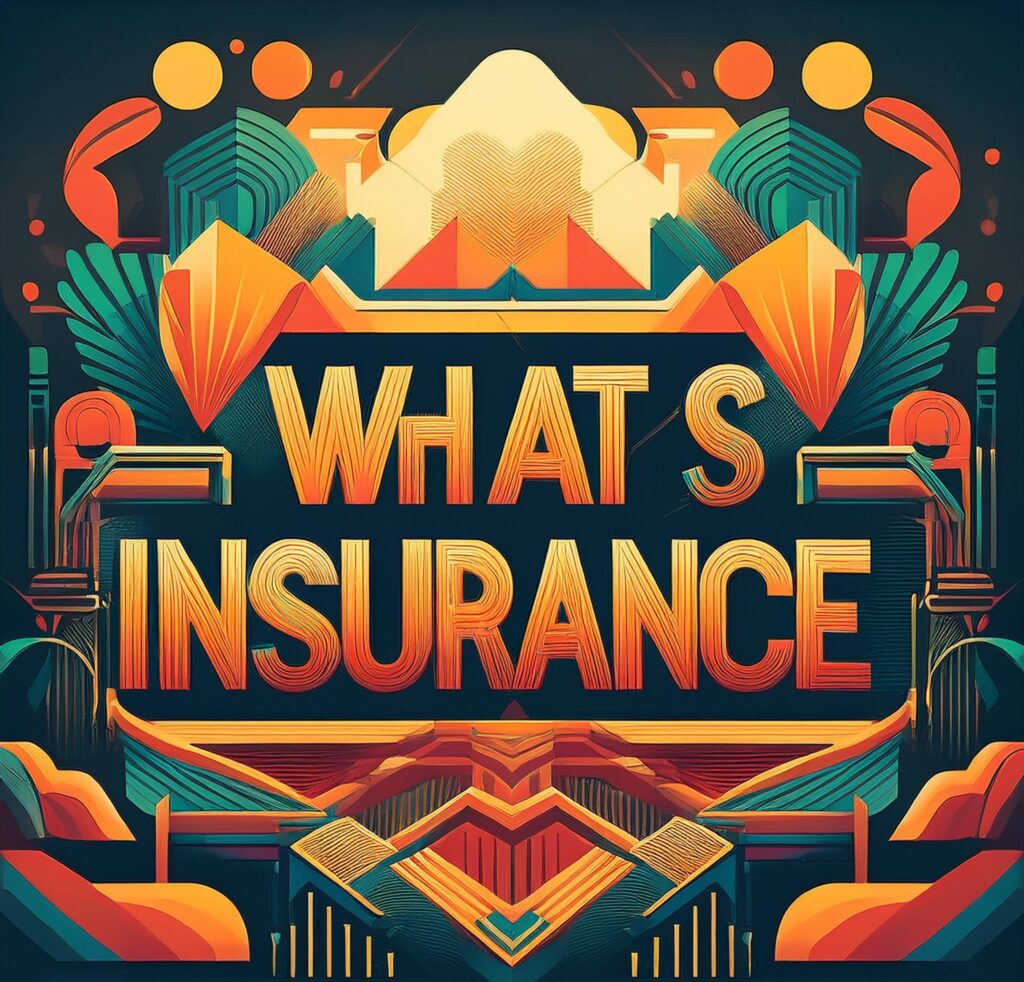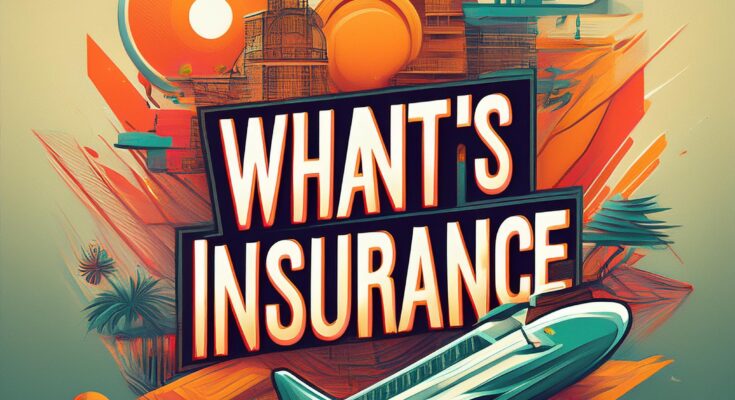Introduction to Insurance
When you think of insurance, what’s the first word that comes to mind? For many, the answer might be “protection.” That’s what insurance is all about in a nutshell. It’s a safety net, a shield against life’s uncertainties. But let’s dig deeper into this concept and see why it’s so vital, especially for those who might be new to the idea.
The Basic Concept of Insurance
Insurance is essentially a contract. You, the policyholder, agree to pay a premium—a regular fee—to an insurance company. In return, the company promises to cover certain risks you might face, like accidents, illnesses, or property damage. Think of it as a shared pool of resources where everyone contributes a little, and those who face difficulties draw from that pool when they need it.
Why is Insurance Important?
Life is unpredictable. One day you’re cruising along smoothly, and the next, you might face a challenge that could set you back financially. Whether it’s a car accident, a medical emergency, or a natural disaster, these events can be costly. Insurance helps you manage those risks, so you’re not facing them alone.
How Does Insurance Work?
It all boils down to risk management. By spreading the risk among many people, insurance companies can help cover the costs when something goes wrong. You pay your premiums, and if something happens that’s covered by your policy, the insurance company steps in to help pay for the losses. It’s a way to ensure that a major setback doesn’t derail your financial future.

Different Types of Insurance
Now that we’ve covered the basics, let’s look at the different types of insurance available. Each type serves a unique purpose, depending on what you need to protect.
Health Insurance
Whether it’s a routine check-up, a prescription, or a major surgery, health insurance can significantly reduce your out-of-pocket costs.
What It Covers
Health insurance can cover a variety of services, including doctor visits, hospital stays, surgeries, and even preventive care like vaccines and screenings. Depending on your plan, it might also cover prescription medications, mental health services, and other treatments.
Benefits of Health Insurance
The primary benefit of health insurance is financial protection. Medical bills can add up quickly, and without insurance, you could find yourself in a tough spot. Health insurance also promotes better health by making regular check-ups and preventive care more accessible.
Life Insurance
Life insurance is a way to protect your loved ones financially in case something happens to you. It provides a payout, known as a death benefit, to your beneficiaries after you pass away.
Term vs. Whole Life Insurance
Term life insurance covers you for a specific period, like 20 or 30 years, while whole life insurance covers you for your entire life and includes a savings component that can grow over time.
Why You Might Need Life Insurance
Life insurance is especially important if you have dependents—people who rely on your income. It ensures that if something happens to you, your loved ones are not left struggling financially. It can cover funeral expenses, debts, and even provide ongoing support for your family.
Auto Insurance
It’s not just about protecting your vehicle—it’s also about protecting yourself and others on the road.
Comprehensive and Collision Coverage
These are additional types of coverage that protect your vehicle. Collision coverage helps pay for repairs if your car is damaged in an accident, while comprehensive coverage takes care of damage from other incidents, like theft, vandalism, or natural disasters.
Homeowners and Renters Insurance
Your home is likely one of your most valuable assets, so it makes sense to protect it with insurance.
What’s Covered Under Homeowners Insurance
Homeowners insurance typically covers damage to your home and belongings from events like fires, storms, and theft.
The Need for Renters Insurance
Even if you don’t own your home, renters insurance is still important. It covers your personal belongings in case of theft, fire, or other disasters, and can also provide liability protection.

The Process of Getting Insurance
Getting insurance might seem complicated, but it doesn’t have to be.
Understanding Insurance Premiums
Your insurance premium is the amount you pay for your policy. This can be paid monthly, quarterly, or annually. The amount you pay depends on various factors, like the type of insurance, your coverage amount, and your risk factors (such as age, health, or driving record).
How to Choose the Right Insurance Plan
Choosing the right insurance plan involves assessing your needs and comparing different policies. Consider what you need to protect, your budget, and any specific risks you face. It’s also a good idea to read the fine print and ask questions if something isn’t clear.
The Role of Insurance in Financial Planning
Insurance plays a crucial role in your overall financial plan. It’s about more than just paying for damages—it’s about securing your financial future.
Protecting Your Assets
Without insurance, a major event like a house fire, a car accident, or a serious illness could wipe out your savings. Insurance helps protect the assets you’ve worked hard to build, ensuring that you don’t have to start over from scratch.
Peace of Mind Through Insurance
Knowing that you have a safety net in place allows you to focus on other aspects of your life without constantly worrying about the “what ifs.”

Common Misconceptions About Insurance
Despite its importance, there are many misconceptions about insurance that can lead people to avoid it or choose inadequate coverage.
Insurance is Too Expensive
While insurance does come with a cost, it’s important to consider the alternative. Without insurance, you could be on the hook for thousands, if not hundreds of thousands, of dollars in the event of a major incident. In many cases, insurance is more affordable than people think, especially when you shop around and compare options.
I Don’t Need Insurance Right Now
It’s easy to think that insurance is something you can worry about later, especially if you’re young and healthy. However, the reality is that accidents and unexpected events can happen to anyone, at any time. Getting insured early can save you a lot of trouble down the road.
Conclusion
In one word, insurance is “protection.” It’s a safeguard against the unpredictable events that life throws your way, providing financial support when you need it most. Whether it’s your health, your car, your home, or your loved ones, having the right insurance in place can make all the difference. Don’t wait until it’s too late—take steps now to secure your future.
FAQs
What is the simplest definition of insurance?
Insurance is a contract where you pay a premium in exchange for financial protection against certain risks, like accidents, illnesses, or property damage.
How does insurance provide financial protection?
Insurance spreads risk among many people, so when something goes wrong, the insurance company helps cover the costs, preventing financial ruin.
Do I needs insurances if I’m young’s and healthy?
Yes, because unexpected events can happen to anyone. Having insurance early ensures you’re covered no matter what life throws your way.
Can I have multiple insurance policies?
Absolutely! Many people have multiple policies to cover different aspects of their lives, like health, auto, and home insurance.
How do I know if I’m getting the right insurance coverage?
Assess your needs, compare policies, and consider consulting with an insurance agent to make sure you’re getting the coverage that’s right for you.



